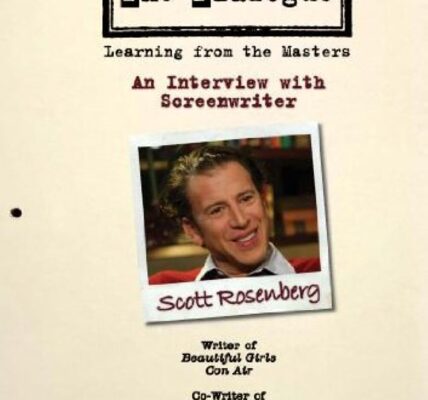You stayed at the Yankee Pedlar Inn while filming The House of the Devil. Did it immediately inspire you to start writing The Innkeepers?
We were making this satanic movie but weirder things were happening back at the hotel! The cast and crew started to think it was haunted [and] the people who work there think it’s haunted. But I was too stressed [making The House of the Devil] to really notice. A year-and-a-half later, when I wanted to make a ghost story, I started to think about the existentialism of having minimum-wage jobs and feeling stuck, and I thought that really applied to the people that work at that kind of hotel. I wrote it very quickly, and I wrote it for this specific place. Then I panicked and thought, if they say no to us shooting there then this script is worthless, because it is about the Yankee Pedlar. Thankfully they said yes!
Do you write all of your screenplays quickly?
I try to do everything in around three to ten days at the most. If I take any longer, the insecurity starts to creep in. Of course, I revise it all the way up until shooting, but the bulk of the work is having a readable script and I try to do this in less than a week. It’s the way my brain works; I get completely obsessed over something until I’m done, and then move on. I have to just sit down and write around 40 pages a day for a few days.
The Innkeepers has an interesting dual narrative of the paranormal and paranoia. Was that in the script from the beginning, or did it evolve when you were working with the actors?
Everything about this movie is very close to the page. The dialogue is, I would say, in the ninetieth percentile of what was on the page, because I tried really hard to write naturalistically. That being said, it’s the actors that really bring it to life. Even if it was written that ‘[Claire] struggles to take the trash out, and she can’t lift up the bag and she’s leaking milk onto her shoes’, it’s not until you see [actress] Sarah [Paxton] actually do it that it really comes to life. It was all there, but the actors’ charisma is what makes it relatable to the audience.
All of your films have a distinctive feel; is that organic, or are you deliberately trying to build a recognisable style?
It is my style, and I’m aware that it’s the way I like to do things, but I don’t think about it too much. I would like people to see my movies and go ‘this is really different to the other ones’ but at the same time be able to tell it’s a movie by the same guy.
All of my favourite filmmakers have a particular style or a brand that people want to be a part of. So people come to them and want to collaborate. That is far more interesting than going out and trying to convince everybody; selling yourself is a really terrible experience. The industry is incredibly uninteresting to me; I just want to make movies with interesting people. To me, the best way of going about that is to establish a brand that people want to be a part of.
As an independent filmmaker, is it difficult to go out there and find people to invest in your idea?
It’s like begging for money, so it’s never the most pleasant experience. I wish people were more inclined to invest in interesting independent movies. It still happens, but it’s not like it was. Everyone wants to invest in $100,000 ‘found-footage’ type movies, because it’s very low risk and very high reward. The reality is that the more derivative [films] are, the more successful they are. The goal in the studio system is not making a good movie. Hopefully that happens. But the goal is to make something that is very broad, that connects to a lot of people and is therefore going to be financially successful. If it happens to be a good movie, then that’s great, but it’s first and foremost about making a product that will be financially successful. That’s not the way that I make movies, so it puts me in an esoteric group of people who are looking for somebody to make really interesting films. Then you’ve got to get in line to find the people who fund those kinds of movies.
You wrote an open letter to film fans about how they need to help keep independent film alive by paying to see these movies. Why did you feel the need to do that?
To make something different, something like The Innkeepers, you have got to get someone who believes in what you are doing to make an investment. If The Innkeepers were to be very successful, and someone else wanted to make their own esoteric movie, you could point to it as proof that these movies were [sic] valuable, and it’s worth investing in it. That’s where it comes into play that if these are the type of movies you like, you really should support them. People just go and see what’s in front of them; there needs to be a more proactive thought pattern. Movies are getting more and more limited in what they are about these days, and it’s because people just keep going to see the same thing over and over again.
It’s really frustrating, because people ask me, ‘How come The Innkeepers isn’t playing in my city?’ Well, it’s because you went to go see Transformers 3 and now Battleship is playing in your city. It’s what you asked for because that’s where you gave your money.
Is it important that filmmakers like yourself be proactive and honest about the way they feel?
I look at making independent movies as less of a career, more of a lifestyle, and I think that conversation is very important. If you can inspire a lot of conversations, they could then educate a lot of people. Whether you agree with me or don’t agree with me, it doesn’t matter. If you don’t like my beliefs then don’t go see my movies. Everyone has their own esoteric thing that they love, but you have to support that. If you want to see just another Transformers movie, then just keep going to see them. That’s all you need to do.












